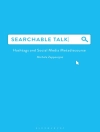Peirce’s (1906) proposal that the universe as a whole, even if it does not consist exclusively of signs, is yet everywhere perfused with signs, is a thesis that better than any other sums up the life and work of Thomas A. Sebeok, ‘inventor’ of semiotics as we know it today.
Semiotics – the doctrine of signs – has a long and intriguing history that extends back well beyond the last century, two and a half millennia to Hippocrates of Cos. It ranges through the teachings of Augustine, Scholastic philosophy, the work of Peirce and Saussure. Yet a fully-fledged doctrine of signs, with many horizons for the future, was the result of Sebeok’s work in the twentieth century. The massive influence of this work, as well as Sebeok’s convening of semiotic projects and encouragement of a huge number of researchers globally, which, in turn, set in train countless research projects, is difficult to document and has not been assessed until now. This volume, using the testimonies of key witnesses and participants in the semiotic project, offers a picture of how Sebeok, through his development of knowledge of endosemiotics, phytosemiotics, biosemiotics and sociosemiotics, enabled semiotics in general to redraw the boundaries of science and the humanities as well as nature and culture.
Giới thiệu về tác giả
Paul Cobley, London Metropolitan University, UK; John Deely, University of St. Thomas, Houston, USA; Kalevi Kull, University of Tartu, Estonia; Susan Petrilli, University of Bari, Italy.












